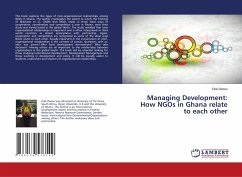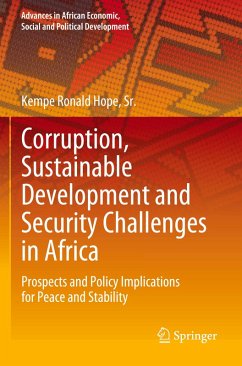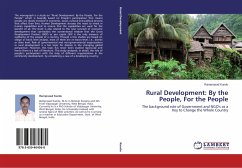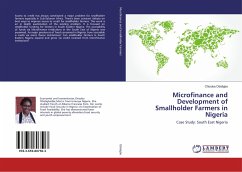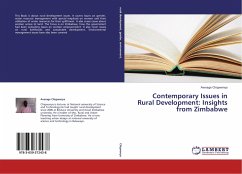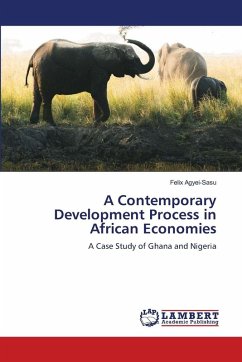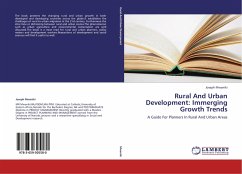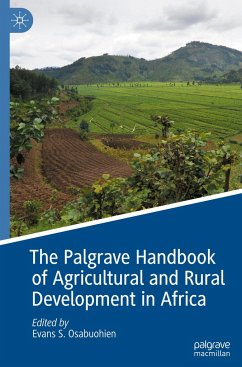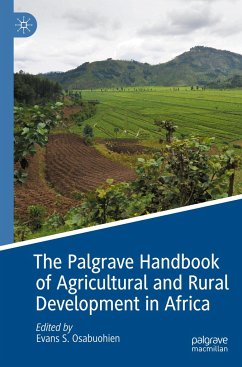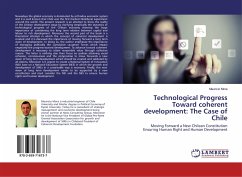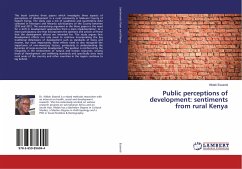
Public perceptions of development: sentiments from rural Kenya
Versandkostenfrei!
Versandfertig in 6-10 Tagen
53,99 €
inkl. MwSt.

PAYBACK Punkte
27 °P sammeln!
This book contains three papers which investigate three aspects of perceptions of development in a rural community in Makueni County of Eastern Kenya. The study uses a mix of qualitative and quantitative data collected in Kitonyoni and Mwania sub-locations of the County between 2010 and 2012. The overarching argument in the three papers is the need for a shift in development approaches from a mere implementation, to a more participatory one that incorporates the opinions and actions of those that the development efforts are intended for. This study argues that development efforts not only need...
This book contains three papers which investigate three aspects of perceptions of development in a rural community in Makueni County of Eastern Kenya. The study uses a mix of qualitative and quantitative data collected in Kitonyoni and Mwania sub-locations of the County between 2010 and 2012. The overarching argument in the three papers is the need for a shift in development approaches from a mere implementation, to a more participatory one that incorporates the opinions and actions of those that the development efforts are intended for. This study argues that development efforts not only need to continue incorporating the key traditional dimensions of development such as standards of living and income, but most importantly, these efforts need to also recognize the importance of non-monetary factors, particularly in understanding the dynamics of socio-economic development. This position is reinforced by the inequality in the endowment of natural and human resources, varying levels of development and wellbeing standards and specifically since most rural areas of the country and other countries in the region continue to lag behind.



